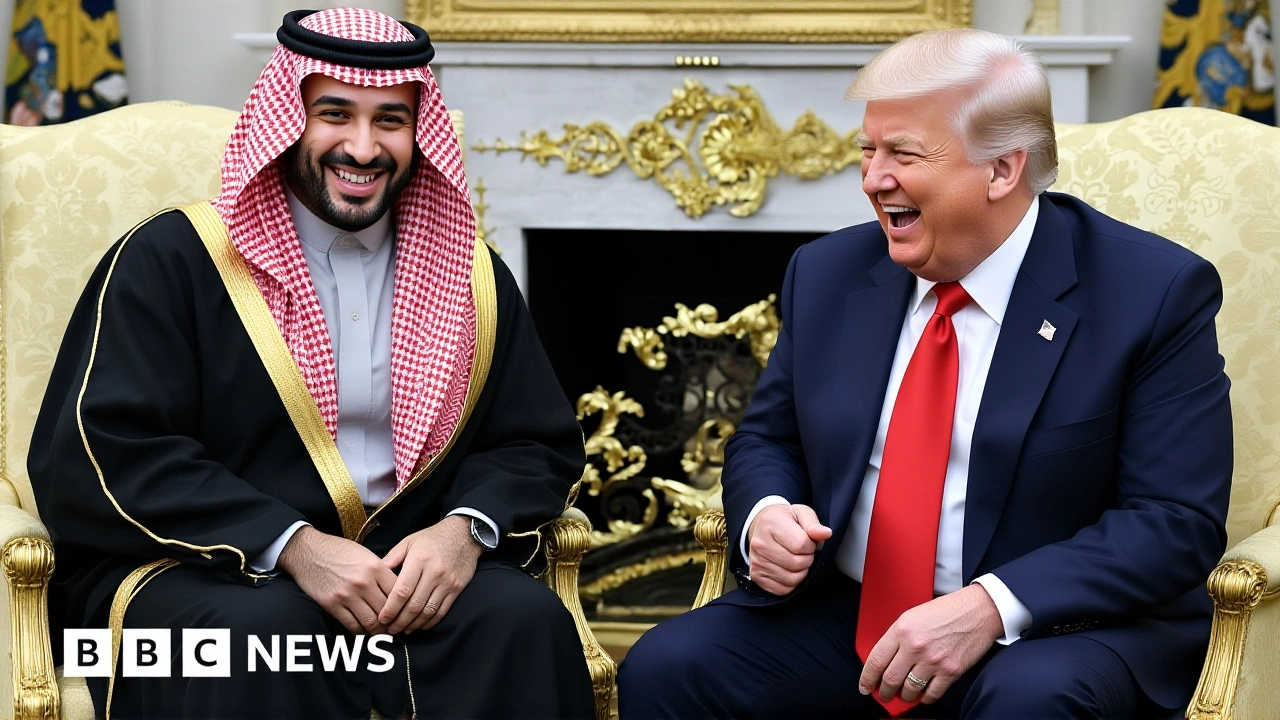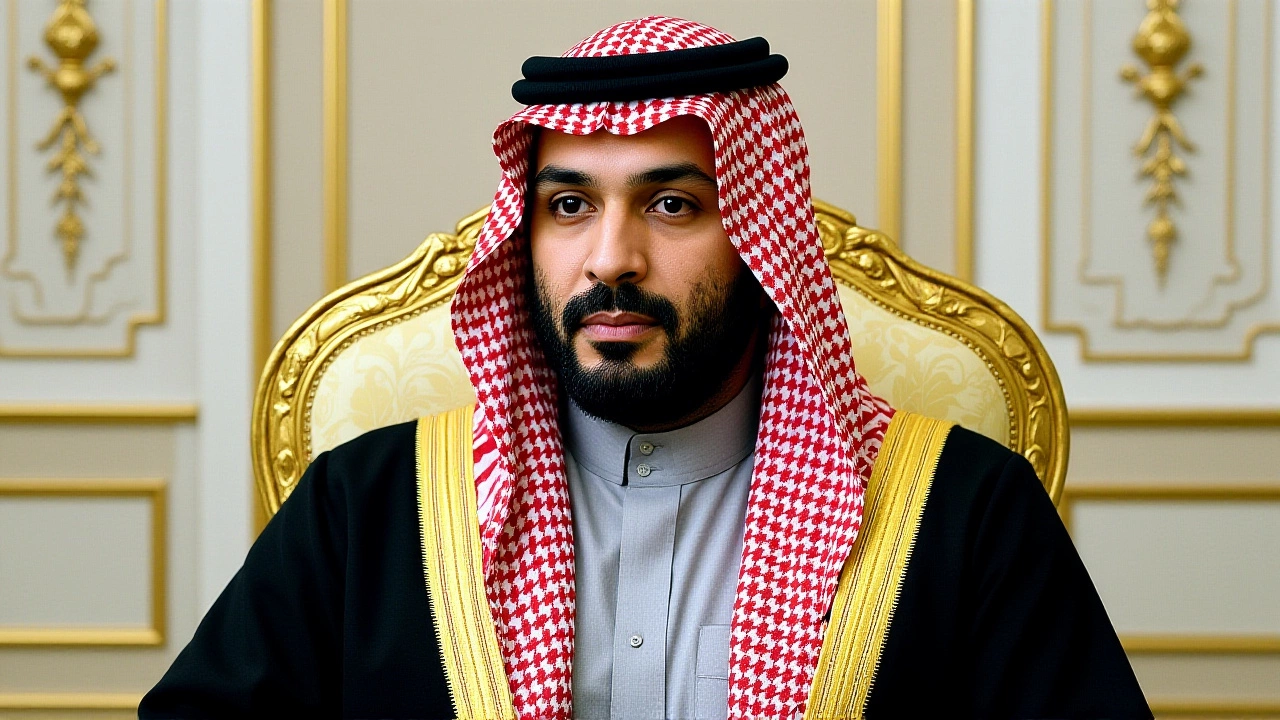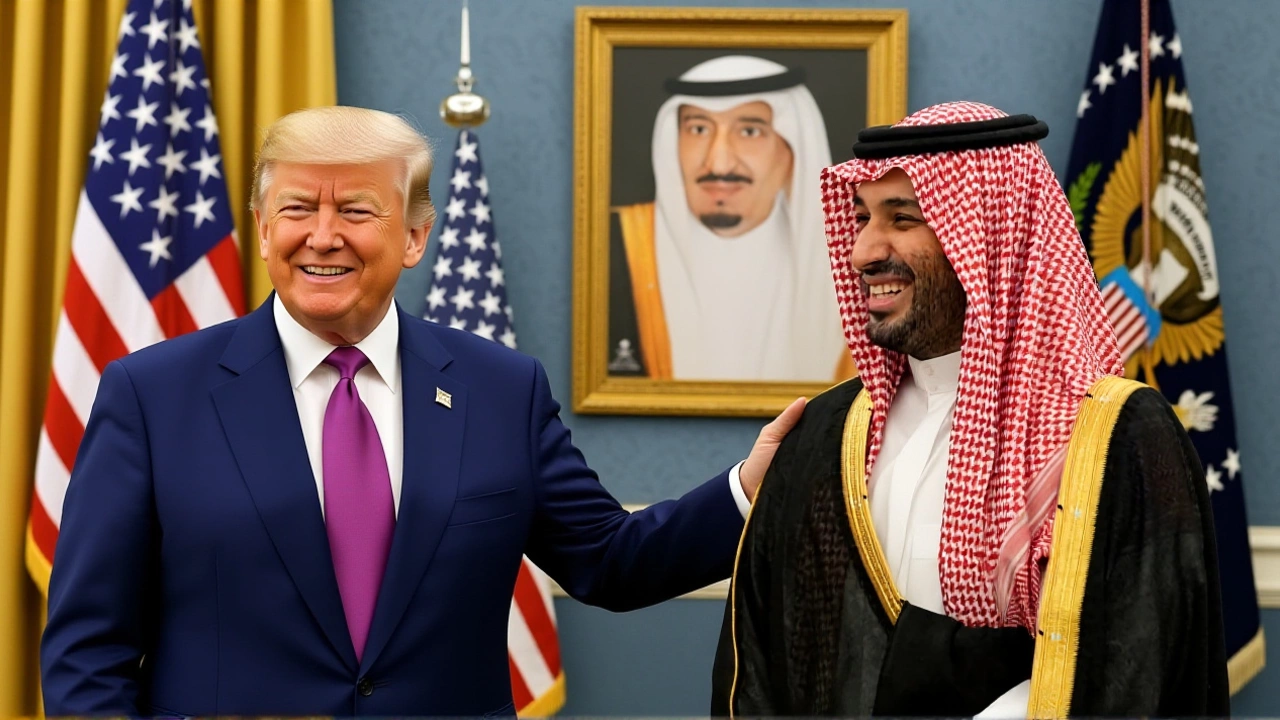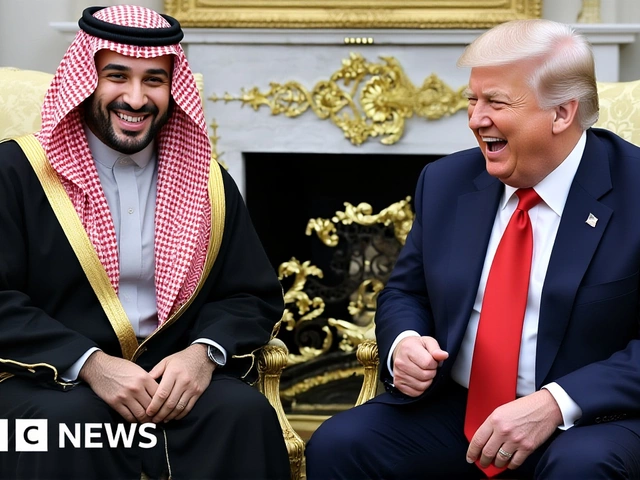Trump Defends Saudi Crown Prince Despite Khashoggi Killing

On November 19, 2025, in the White House’s Oval Office, President Donald J. Trump greeted Crown Prince Mohammed bin Salman with open arms — just hours after NBC News aired a report detailing how the U.S. president dismissed the CIA’s conclusion that the Saudi leader approved the 2018 murder of journalist Jamal Khashoggi. The meeting, the first between the two since the killing became public, wasn’t just a diplomatic handshake. It was a political statement. And it sent shockwaves through human rights circles, media watchdogs, and families of victims worldwide.
A Stark Reversal of U.S. Policy
When President Joseph R. Biden Jr. took office in 2021, his administration made a point of condemning the Khashoggi killing. Sanctions were slapped on Saudi officials. The U.S. publicly called the murder a "brutal" act. But now, under Trump’s second non-consecutive term, the tone has flipped. "WHAT HE'S DONE IS INCREDIBLE IN TERMS OF HUMAN RIGHTS AND EVERYTHING ELSE," Trump told reporters in the Oval Office, according to NBC’s transcript. That line — delivered with conviction — wasn’t just misleading. It was a direct contradiction of documented facts.
The Central Intelligence Agency (CIA), headquartered in Langley, Virginia, concluded in 2018 that Crown Prince Mohammed bin Salman personally authorized the operation that led to Khashoggi’s dismemberment inside the Saudi consulate in Istanbul. Multiple international investigations, including one by the United Nations, reached the same conclusion. Yet Trump dismissed it all: "He knew nothing," the president insisted.
The Crown Prince’s Words — and Their Weight
When pressed during the meeting, Crown Prince Mohammed bin Salman, 39, offered a rare moment of candor. "It was a huge mistake. I feel terrible, horrible," he said, according to NBC reporter Peter Alexander. Those words, captured on live television, were the closest the prince has ever come to admitting responsibility. But Trump didn’t let them stand. He immediately pivoted to economics.
"Hundreds of billions of dollars" in Saudi investments in the U.S., Trump claimed — though no exact figure was provided. He also confirmed plans to sell F-35 Lightning II fighter jets, manufactured by Lockheed Martin Corporation in Bethesda, Maryland, to the Royal Saudi Air Force. That’s not just a business deal. It’s a strategic pivot. The F-35 is America’s most advanced stealth fighter. Only a handful of allied nations have been cleared to operate it. Saudi Arabia, once barred under Biden, is now being offered access — with no public conditions attached.

Who’s Speaking Out?
Not everyone welcomed the embrace. Hanan Elatr Khashoggi, Jamal’s widow, issued a quiet but searing rebuke. "President Trump misrepresented my husband," she told reporters outside the White House, according to sources close to her legal team. "He turned a man who fought for free speech into a political prop for a regime that silenced him with extreme violence."
Journalists at The Washington Post, where Khashoggi was a columnist, expressed outrage. Editor Sally Buzbee released a statement: "Jamal’s voice was not a policy tool. He was a human being whose murder was an international crime. Celebrating his killer undermines every journalist who risks their life for truth."
Meanwhile, human rights groups like Amnesty International and Human Rights Watch called the meeting "a moral collapse." "When a U.S. president chooses economic gain over accountability for murder," said Sarah Leah Whitson, director of HRW’s Middle East division, "he signals that some lives are expendable."
Why This Matters Now
This isn’t just about one meeting. It’s about the normalization of authoritarianism. The Khashoggi killing was never just a Saudi internal matter. It was a global litmus test: Would the world hold power to account? Trump’s response says no — at least not when the price is right.
The timing is also telling. With the 2026 midterm elections looming and Saudi Arabia’s oil production critical to global energy markets, Trump is clearly betting on realpolitik over principles. The crown prince, for his part, has spent the past seven years rebranding Saudi Arabia as a "modernizing" state — investing in NEOM, hosting the World Cup, and courting Western investors. But behind the glossy ads? The same crackdown on dissidents, the same detention of women’s rights activists, the same chilling silence on free expression.

What Comes Next?
The F-35 sale will now move through Congress, where Democrats have promised to block it. Senator Chris Van Hollen (D-MD) said he’ll introduce legislation to prevent the transfer unless Saudi Arabia releases all political prisoners and allows an independent UN inquiry into Khashoggi’s murder. The White House says the sale is "in the national interest." But the public, especially younger voters, is watching. Polls show 68% of Americans under 35 oppose arming Saudi Arabia after Khashoggi’s killing.
And then there’s the legacy. Jamal Khashoggi was killed because he dared to speak truth to power. Now, his name is being used — by the very president who once called him a "bad guy" — to justify a deal that benefits billionaires and defense contractors. The irony is thick enough to choke on.
Frequently Asked Questions
Did the CIA really conclude that Crown Prince Mohammed bin Salman ordered Khashoggi’s killing?
Yes. The CIA’s 2018 assessment, confirmed by multiple U.S. intelligence agencies and later by a UN special rapporteur, concluded with "high confidence" that Crown Prince Mohammed bin Salman approved the operation to capture or kill Jamal Khashoggi. The agency cited intercepted communications and the prince’s direct control over Saudi security forces. No U.S. president has publicly contradicted this finding — until now.
What has changed in U.S.-Saudi relations since Biden’s presidency?
Under Biden, the U.S. halted offensive arms sales to Saudi Arabia, imposed sanctions on 17 Saudi officials linked to Khashoggi’s murder, and publicly criticized the kingdom’s human rights record. Trump’s administration is reversing course: lifting sanctions, approving F-35 sales, and publicly praising the crown prince. The shift reflects a return to pre-2018 policy — prioritizing oil, arms deals, and regional alliances over accountability.
Why does the F-35 sale matter so much?
The F-35 is the most advanced fighter jet in the world, with stealth technology and precision strike capabilities. Only NATO allies and close partners like Japan and Israel have received it. Selling it to Saudi Arabia — a country with no democratic institutions and a record of civilian airstrikes in Yemen — sets a dangerous precedent. It signals that U.S. military technology can be exported regardless of human rights abuses.
What role did Peter Alexander play in revealing this meeting?
As NBC News’ White House correspondent, Alexander was the only reporter granted access to the Oval Office exchange. His live report included direct audio of Trump’s comments and the crown prince’s admission that the killing was "a huge mistake." His reporting triggered immediate global backlash and forced lawmakers to publicly respond. Without Alexander’s coverage, the full extent of Trump’s defense might have remained hidden.
How has the public reacted to Trump’s defense of the crown prince?
Public reaction has been sharply divided. Polls by Pew Research show 62% of Americans disapprove of Trump’s stance, with 78% of Democrats and 45% of independents saying it damages U.S. credibility on human rights. But among Trump’s base, approval is high — 71% believe economic ties should outweigh moral concerns. Social media trends like #KhashoggiWasNotAMistake have surged, with over 2.1 million posts in 48 hours.
What’s next for Jamal Khashoggi’s family?
Hanan Elatr Khashoggi and her legal team are pursuing a civil case against Saudi officials in U.S. federal court under the Alien Tort Statute, arguing that the killing violated international law. They’ve also launched a global campaign to pressure tech companies to stop doing business with Saudi entities linked to surveillance of dissidents. "We won’t let his death be erased by a handshake," she told The Guardian.

